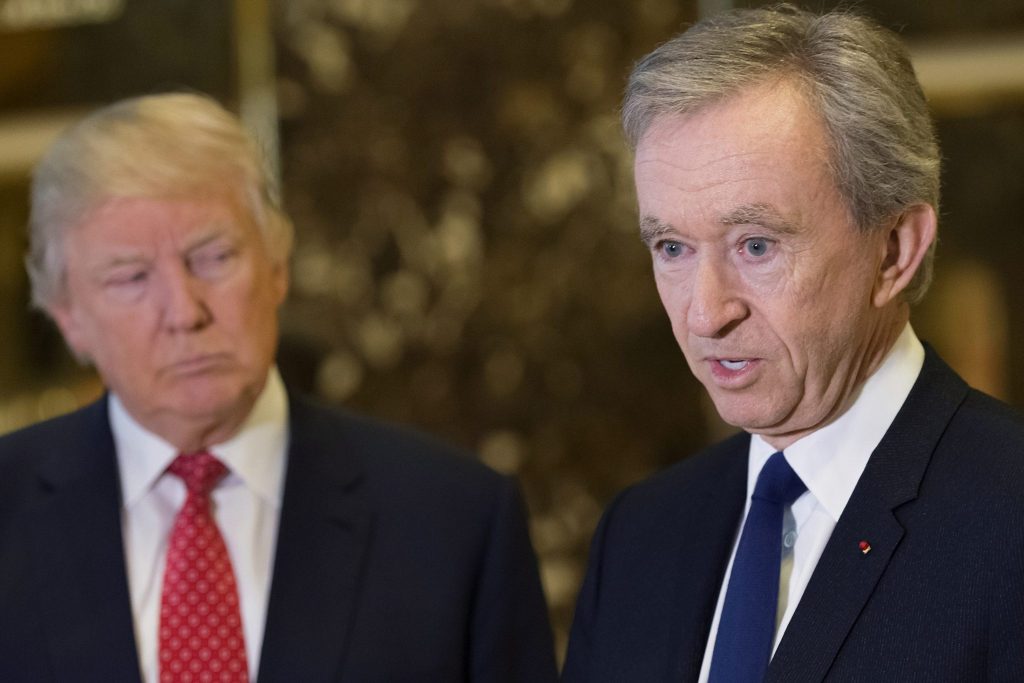Bernard Arnault, Europe’s richest man and the CEO of luxury empire LVMH, is furious with how the European Union managed its trade ties with the U.S.
He made that sufficiently clear at LVMH’s annual shareholder meeting late last week, warning that the company behind Christian Dior and Tag Heuer might nearshore its operations to the U.S. in the event of a trade war.
“It will be Brussels’ fault if this happens,” Arnault said, suggesting that “European countries should try to manage these negotiations, and not leave them to bureaucrats.”
The 76-year-old LVMH boss criticized the EU for spending too much time crafting regulations that hurt businesses more than they helped them.
Arnault voiced his frustration over trade volatility owing to U.S. tariffs, which were initially set to be upwards of 20% before President Donald Trump lowered them to 10% earlier this month.
Even if the worst-case scenario may have been temporarily averted, the EU is under pressure to cut a deal with the U.S. sooner rather than later. The bloc proposed a zero-for-zero tariff that would mean no levies on transatlantic trade.
While that may not be the final terms, European Commission President Ursula von der Leyen proudly touted that “countries are lining up to work with us,” in comments reported by Politico on Tuesday.
“In the middle of the chaos, Europe stands firm, grounded in values, ready to shape what comes next,” she said.
The top diplomat said the bloc wouldn’t flinch from responding to U.S. tariffs if negotiations were to break down. Von der Leyen even warned of a raft of countermeasures that the EU could resort to, including tariffs on digital services. Ultimately, she said the U.S.-Europe relationship will never be the same.
But things seem to have cooled down since the tariffs were first announced.
Last week, Trump met with Italian Prime Minister Giorgia Meloni, after which he said, “there will be a trade deal, 100%.” The American president, who was all praise for Meloni despite belittling Europe on several occasions, emphasized that the deal would be fair.
Businesses, big and small, are parched for news on the trade front after weeks of uncertainty. A trade agreement would mean the U.S. and Europe, which are major trade partners, will finally see eye to eye.
This is especially important for European companies, as many of their biggest companies have a presence in the U.S. For luxury behemoths like LVMH in particular, American shoppers represent a critical mass, and the company hopes this affluent group can offset the softness in Chinese demand that has aggravated a slowdown in luxury sales.
The fallout from Trump’s plan left stock markets bereft. LVMH, which makes 25% of its revenue from the U.S., has seen its shares drop over 25% since the start of the year. The company has also lost its crown as the most valuable luxury company to fellow French rival, Hermès. Arnault’s personal wealth has suffered a loss of $23.4 billion during this period, according to the Bloomberg Billionaires Index. He still remains Europe’s richest person.
Arnault has hinted at expanding production in the U.S. before, especially as he has a close relationship with Trump that goes back several decades.
While LVMH argues it hasn’t seen the impact of tariffs on its business just yet, it might only be a matter of time before that happens—unless a trade deal is struck in time to avoid that.
This story was originally featured on Fortune.com







